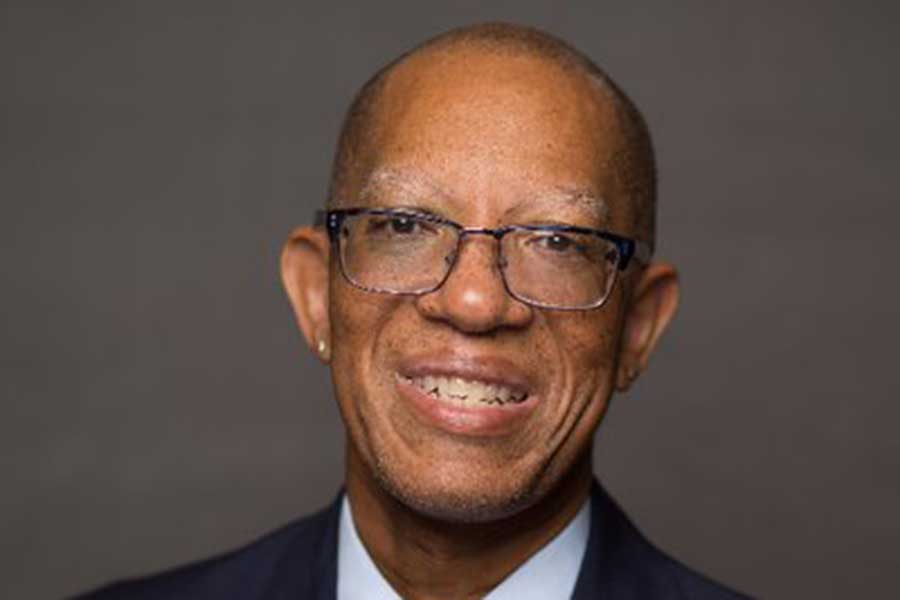Wayne, Bruce, Troy, Greg, Marcus, John, Dominic … I remember their names. Beautiful men — mostly young, certainly too young to die. I remember their names and I will say their names on World AIDS Day, Dec. 1.
Troy was the youngest — he’d just turned 22 — and the sweetest. And the most honest. “Larry,” he told me, “I’m scared. What do you think it’s like to die?”
We, his friends, gathered around him and held him close, doing what we could and, still, he slipped away from us. When he did, his parents, who we’d never met, claimed his body quickly, denying us the closure a funeral would have provided. They took his body back to Georgia where it remained for days at the airport because the local funeral home refused to accept his body once they learned he’d died from complications of AIDS. I wept for weeks.
Then there was Marcus,who I admit, I had a huge crush on — but who most discouraged me, not seeing anything loveable in me until it was too late. After a routine dental extraction led to illness, he tested positive for HIV. I remember one day he asked me to bring him grapes, not realizing grapes were not “in season.” I drove all over this city determined to find grapes somewhere for him. He contracted pneumocystis pneumonia. He suffered brain damage. I became the only person he recognized. I remember walking into his hospital room full of his family. He called me to his side and asked me, “Larry, who are all these people? Can you make them leave?”
I went to see Marcus the day he died. He was sleeping, so I sat quietly crying by his bed. A nurse coming into the room insisted I wake him. I did. It was the last time I would see him. His was the last funeral I attended.
And Greg. My friend. With his ridiculous handlebar mustache. Greg, who encouraged me to write and who was the only person I allowed to read the first draft of my first novel. We would argue over his suggestions and criticisms, but his feedback was invaluable. I still regret that when it was finally published, some 17 years later, he was not there to share my joy and surprise.
Then there were all the ones I knew of, but did not know personally.

Rock Hudson, who had to charter an Air France Boeing 747 jet to return to Los Angeles after seeking treatment in France because American Airlines refused him a seat, saying they didn’t fly AIDS patients.
Then there was Pedro Zamora. November 11 marked 24 years since he died from complications of AIDS. Zamora appeared on MTV’s The Real World in 1994, becoming the first openly HIV-positive and openly gay person on television. At the age of 17, while still in high school, he tested positive for HIV. His appearance on the show was nothing short of transformative. For many, it was the first time they’d seen a happy out gay man and a person with AIDS living their day-to-day life.
I remember the day he died — I joined a nation in mourning. It was the most palpable grief I could remember since the assassination of John F. Kennedy. Back then, it had been the first time I’d seen a grownup cry. This time, with Pedro’s passing, I was one of the adults crying.
So much has changed since then. Joy has emerged from so much darkness. An HIV diagnosis has changed from a death sentence to being a chronic, treatable condition. We know about safe sex and that it works. There is rapid HIV testing. (I remember waiting two nerve-wracking weeks waiting for my first HIV-test results.) There are anti-retroviral therapies. There is PreP (Pre-exposure Prophylaxis), which enables people who don’t have HIV to prevent HIV infection by taking a pill every day. There is also PEP (Post-Exposure Prophylaxis), which involves taking anti-HIV medications within three days after possibly exposed to HIV to try to reduce the chance of becoming HIV positive.
I am grateful not just for all that has changed, but for the opportunity to be attached to Mazzoni Center, the oldest AIDS-service organization in the commonwealth of Pennsylvania, which has been providing innovative and compassionate care and services for people living with HIV since 1981.
Larry Benjamin is director of communications at Mazzoni Center, and the author of three novels set against the backdrop of the early AIDS crisis as a way to honor and remember an entire generation of gay men who were lost. To learn more about Mazzoni Center’s HIV Prevention and Care services, visit: https://www.mazzonicenter.org/hiv-prevention-care
